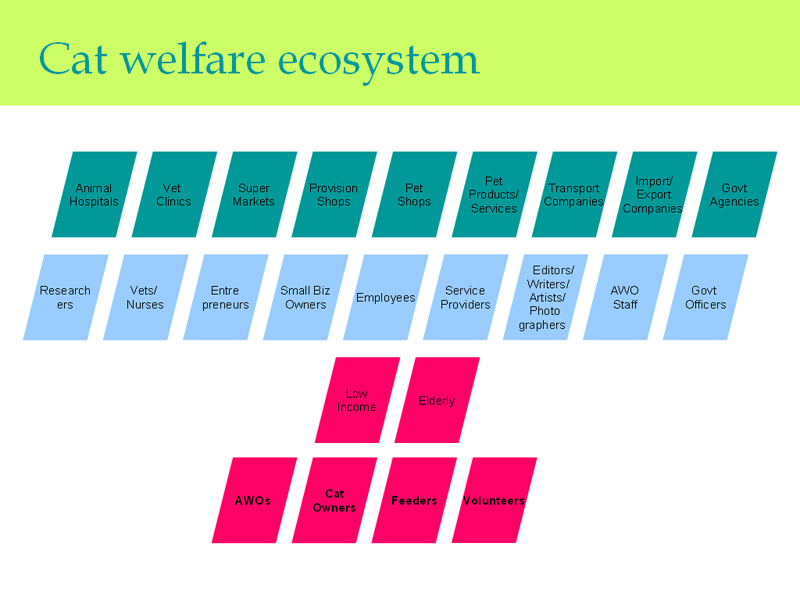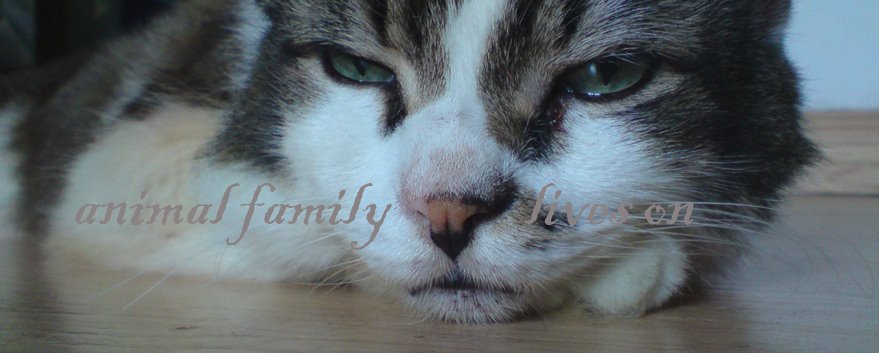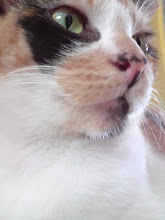Animal welfare is perhaps the hardest hit for its very nature. TNP recently threw a spotlight on a jobless man in Ang Mo Kio who has 80 stray cats under his care. Reactions to the story echo a general public sentiment that the jobless man and his kind are out of their blinking minds, spending money on CATS of all things in this crisis where so many people could use that extra lifeline. This sentiment spills over to animal welfare work on the whole.
It often escapes them that quite simply, cats don’t eat money, nor dogs, birds, sharks or whales. We might try it for a lark but still perfectly legal tender following a rinse after regurgitation.
We merely ingest a small measure of raw materials that money can buy. The bulk of the money spent goes right back to people, and lots of them. If spending is the way out of this crisis like we keep getting told, animal people are certainly no small part of that equation!

Lucky for us, our caregivers are legendary for their single-minded obstinacy. No job, no money but don’t even think about suggesting that they discontinue their feeding rounds or with TNRM. They know enough from watching their cats how to gnaw the thinking parts off a cold hard household pest.
These aunties and uncles are the very people carrying the brunt of a country’s uncertain economic future, but somewhere along the line, they rejected everything that this society has taught them and made the conscious, unwavering decision to focus on something outside of themselves rather than their own problems.
In a crisis, they become more resourceful, more willing to ask for help, forming their own network of collaborators and sponsors, and taking advantage of all available subsidies from organisations like SPCA and the Cat Welfare Society. And they are doing it in english, in mandarin, in malay, in tamil and several dialects.
The way a Toa Payoh caregiver sees it, “When you have money, you have no time. When you have time, you have no money.” So they go about joining the dots between the people with money and the people with time.
All the more, they look to animal welfare organisations to provide a level playing field with their programmes and subsidies. These organisations are able to connect recipients with donors on a far larger scale than any individual or group, to the combined tune of $110,000 last year for cat sterilisation alone. This is up from $90,000 from the previous year.
And they need to meet this growing demand in good times and in bad.
If you are surviving the crisis with a little extra in your pocket, please consider giving to the SPCA and the Cat Welfare Society. Cats don’t need your money but the uncles and aunties who love us do.
Tooty would like to thank the generous people out there who contributed to the hoarding case. In particular, Cat Welfare Society, Paw Pledge and the anonymous individuals all the more noble for their anonymity.




4 comments:
We at theanimalhousejamaica.org love this article. So well-written and so true.
One love from Jamaica...
It is so sad but true. When the economy is down so are donations.
Thanks for the article and this blog, take care! You have been 'tomorow-ed'...
I'll be circulating this post around to my friends in the VSS as well.
"Cats don’t need your money but the uncles and aunties who love us do."
Hmmm...sound like the govt. don't need your money but the world's most expensive ministers do.
Post a Comment